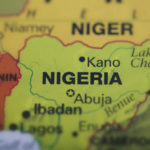People fleeing religious persecution in their homelands account for a significant part of the “unprecedented” global refugee crisis, the U.S. Commission on International Religious Freedom notes in its latest report.
The commission released its “Global Overview of Refugees Fleeing Religious Persecution” report on May 12.

Even before the Russian invasion of Ukraine, more than 82 million people worldwide were displaced, including about 27 million refugees, the commission reports.
“Two-thirds of these refugees are from five countries, which include three countries with systematic, ongoing and egregious persecution of various religious communities: Afghanistan, Burma and Syria,” the report states. “An additional 4.1 million of these 82 million individuals fled persecution and are seeking asylum.”
The commission notes developing countries host 86 percent of the world’s refugees, and those nations “often struggle to provide adequate resources to support refugee populations.”
The report provided an overview of countries where groups are fleeing religious persecution.
- Afghanistan—The U.N. High Commissioner for Refugees reports 2.6 million registered Afghan refugees, with 2.2 million of them in Iran and Pakistan, and an additional 3.5 million people are internally displaced. In the months after the United States withdrew from Afghanistan and the Taliban took control, 120,000 Afghans—including religious minorities—were evacuated. The Taliban “continues to persecute religious minorities and punish residents in areas under its control in accordance with the Taliban’s extreme interpretation of Islamic law or Shari’a,” the report states.
- Burma—More than 1.2 million refugees have fled Burma, also known as Myanmar. Most are Rohingya, a predominantly Muslim group, who “have fled decades of systematic discrimination, statelessness and targeted violence,” the commission reports. “Since the Tatmadaw [military] took control of the Burmese government in February 2021, ongoing violence has pushed at least another 200,000 people from different communities to be internally displaced or seek refuge in neighboring countries,” the report states. About 30,000 Chin people, a predominantly Christian group, fled to India last December.
- Central African Republic—More than 600,000 people—particularly Muslims victimized by sectarian violence—fled into neighboring Cameroon, Chad and other countries. More than one-fourth of the country’s population has been displaced since civil conflict between Christian- and Muslim-affiliated militias began in 2013.
- China—Members of religious minorities that have escaped from persecution in China have been forced to return due to a “sophisticated, global and comprehensive campaign” of transnational repression carried out by the Chinese Communist Party. “The government has used its economic and geopolitical influence to pressure governments of foreign countries to forcibly repatriate refugees to China,” the commission’s report states.
- Eritrea—The government in Eritrea considers unregistered religious groups as illegal and punishes their adherents for practicing their faith publicly. The U.N. High Commissioner for Refugees reports about 300,000 Eritrean refugees in Ethiopia and Sudan, but many face deportation back to Eritrea.
- Iran—Religious minorities who leave Iran often are pursued by the Iranian Islamic Revolutionary Guard Corps. “Individuals from several religious communities from Iran, including Christians and members of spiritualist movements, have sought refuge in Turkey, where authorities sometimes deny them adequate protection from Iran’s extraterritorial persecution,” the report states.
- Iraq—More than 6 million Iraqis were displaced forcibly when ISIS emerged in 2014. “Although ISIS was defeated in 2017, a large number of displaced members of Iraqi religious and ethnic minority groups still languish in IDP (Internally Displaced Persons) and refugee camps, and the whereabouts of around 3,000 abducted Yazidi women and girls remain unknown,” the report states. “As of 2021, reports estimated around 2.9 million Iraqis to be internally or externally displaced.
- Nigeria—Militant Islamist groups in northeast Nigeria continue acts of violence. “Groups like Boko Haram, Islamic State in West Africa Province and Ansaru have attacked, abducted and executed those they consider ‘apostates’ for disagreeing with their leaders’ religious beliefs,” the commission’s report states. An estimated 300,000 Nigerians are refugees, mostly in Cameroon, Chad and Niger, and an additional 2 million people are internally displaced.
- Syria—In the past decade, ongoing political conflict and a humanitarian crisis have affected both the Sunni Muslim majority and various ethnic and religious minority groups. “By 2021, more than half of the country’s pre-war population of just over 21 million had suffered displacement either internally or across national borders, cementing the Syrian crisis as one of the world’s largest refugee and displacement disasters in recent times,” the report states. “Varying estimates to date suggest the conflict has generated at least 6.9 million [internally displaced people] within Syria—one of the largest IDP populations in the world—and 6.6 million refugees dispersed globally.”
- Ukraine—More than 5 million refugees have fled Ukraine since Russia launched its invasion in February, with most finding refuge in Poland, Romania and Hungary. “Russian forces have committed war crimes and other atrocities. The conflict poses a risk to religious communities across Ukraine, with the potential to drive even more displacement,” the report states. “In the areas of Ukraine already occupied by Russia since 2014, the Russian government uses baseless charges of religious extremism and terrorism to silence dissent, justify endless raids and mass arrests, and close religious institutions that do not conform to its narrow interpretation of ‘traditional’ religion.”
- Vietnam—“Due to government persecution, religious minorities from Vietnam have escaped to and sought refuge in Thailand and Cambodia, where they face precarious situations,” the report states. Since Thailand lacks a national legal framework to protect refugees and asylum-seekers, those whom the United Nations has recognized as refugees can be considered illegal immigrants by the Thai government and can face detention and repatriation.
Recommendations for U.S.
In a section of the report focused on U.S. policy toward refugees, the commission urges the Biden administration to work toward its goal of admitting 125,000 refugees in this fiscal year.
It encourages giving priority in resettlement to those fleeing “the most egregious forms of religious persecution” and to survivors of genocide and crimes against humanity.
The commission particularly calls on the U.S. State Department to grant priority refugee status to members of Afghan religious minorities who face risk of persecution from the Taliban.
Sign up for our weekly edition and get all our headlines in your inbox on Thursdays
Finally, the commission recommends the administration “address longstanding flaws in the treatment of asylum seekers in Expedited Removal.”
“This includes enhancing the quality and oversight of the initial processing of noncitizens, improving detention conditions, and appointing a high-level official at the U.S. Department of Homeland Security to coordinate and oversee reforms,” the report states.














We seek to connect God’s story and God’s people around the world. To learn more about God’s story, click here.
Send comments and feedback to Eric Black, our editor. For comments to be published, please specify “letter to the editor.” Maximum length for publication is 300 words.